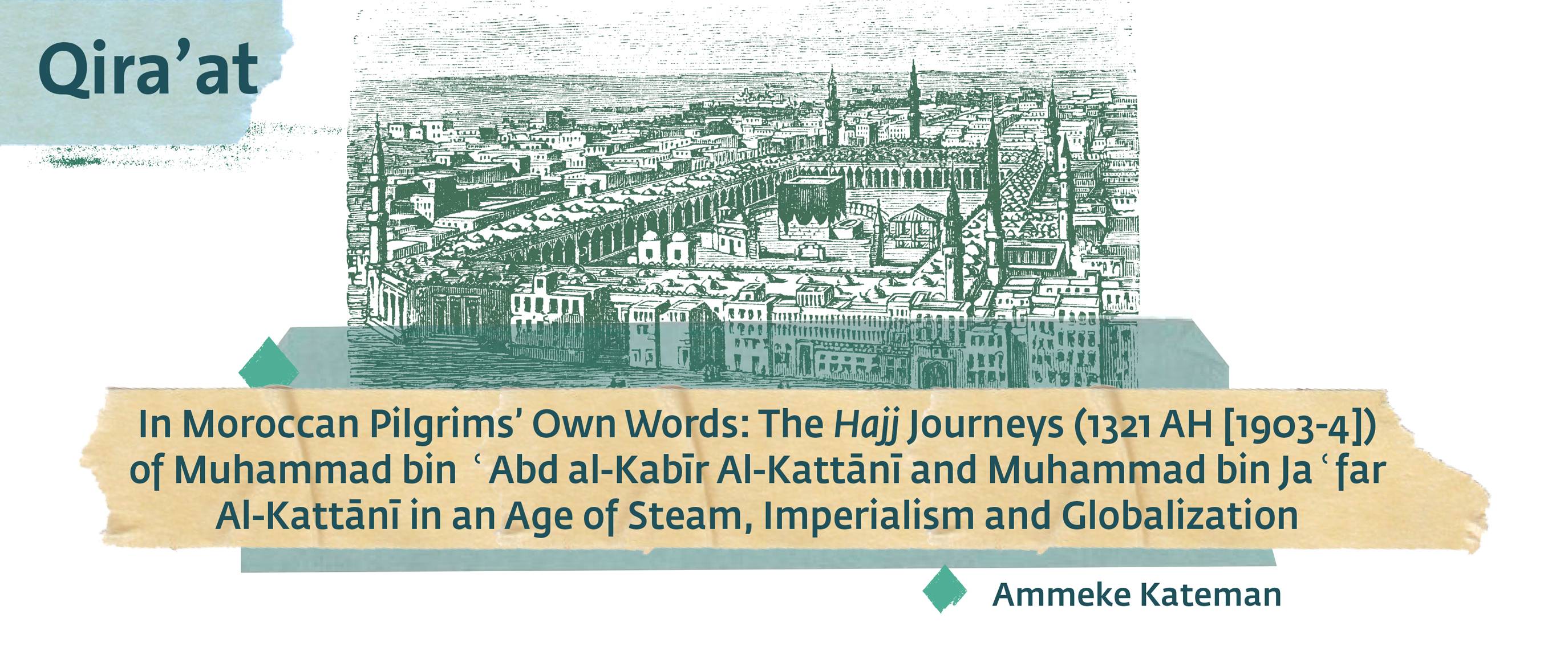In Moroccan Pilgrims’ Own Words: The Hajj Journeys (1321 AH [1903-4]) of Muhammad bin ʿAbd al-Kabīr Al-Kattānī and Muhammad bin Jaʿfar Al-Kattānī in an Age of Steam, Imperialism and Globalization
This article analyzes a cluster of Moroccan ḥajj accounts – all related to the popular Kattāniyya Sufi order in Fez – to explore the role of the ḥajj and the Ḥijāz in these pilgrims’ own words, at a time when the experiences of imperialism, new technologies and globalization were inevitable for any Moroccan ḥajj traveller. Studying the accounts of the journeys of shaykh Muḥammad bin ʿAbd al-Kabīr al-Kattānī (1873-1909) (written by his follower ʿAbd al-Salām bin Muḥammad al-Muʿṭī al-ʿAmrānī) and his cousin, the ḥadīth-scholar and biographer Muḥammad bin Jaʿfar al-Kattānī (1858-1927), this article shows how the ḥajj and its journey inevitably gained and changed meaning in direct reference to the contexts of both imperialism and steam transportation. In a way, the new context re-emphasized and recentralized the ḥajj and the Ḥijāz. But that is not all these travelogues convey. Drawing on centuries of ḥajj travel writing, the Kattānīs and their followers narrated their journeys as an Islamic journey through an Islamic geography, aimed at meeting other Muslims and gathering Islamic knowledge along the way. Read this way, their travelogues reveal themselves as a reassertion of Islam and a reiteration of its relevance in a context in which they felt Islam was under siege, whether this was done consciously or not. It was one of the ways that the ḥajj did not lose but gained meaning in these travelogues in an age of imperialism, steam and globalization.




